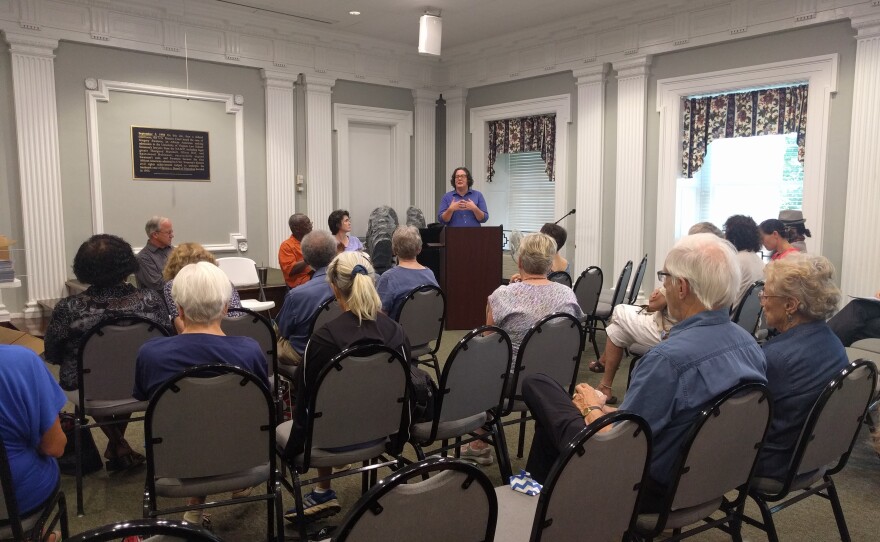Former Albemarle NAACP director Rick Turner spoke at Saturday’s monthly Democratic Breakfast about racial disparities in the education system. He and other panelists talked about how school discipline practices lead to disproportionate discipline for racial minorities, and ultimately, to increased contact with the criminal justice system. WMRA’s Marguerite Gallorini reports.
The school to prison pipeline was the focus of this month’s Democratic Breakfast. Dr. Rick Turner, former president of the local NAACP for the past 12 years, was one of the panelists invited to speak on the subject. His career has revolved around education and racial justice in the school system, including higher education. But, he realized it starts at a much earlier age:
RICK TURNER: It really didn't dawn on me until last night, that I better start talking about preschool. And I was surprised to find out that preschool children are three times more likely to get suspended than K through 12th grade combined. What is it that teachers are not aware of? When we pay attention to negative behavior in children, that's what we get. And when we pay attention to positive behavior in children, we get that too.
And children of color are much more likely to be suspended.
TURNER: African-Americans are only 19 percent of the preschool enrollment, but comprise more than 50 percent of all suspensions. Children who are suspended are ten times more likely to 1) drop out, 2) have low achievement, 3) enter the juvenile justice system, and 4) are suspended again, and again.
Repetitive suspensions mean that the students increasingly miss out on learning. Bekah Saxon is a local representative for the Virginia Education Association and she has worked in public schools for many years.
BEKAH SAXON: I was a special ed teacher, but I didn't have the autonomy to actually do what was in their best interest. But it was really because of how the system was not working, how we were failing young black males – my case load, every year, was 90 percent African-American males. But most of them should not have been in my class, their needs should have been met elsewhere.
She says teachers and schools don’t have enough training, freedom, and resources to address their students’ needs.
SAXON: And when your needs are consistently not met in a major way in school, which is your academic needs, you learn that you can't trust the adults around you to meet any of your needs. And you shut down, and you don't end up learning the material and you get that reinforced year after year – because the teachers are tied to this curriculum, and then they're left with kids that are frustrated and acting out, and teachers end up sending them out of the classroom because they don't know what else to do.
This has been a trend since zero tolerance policies, which were massively put in place following the Columbine High School shooting of 1999. A study published this year by two researchers from the University of Kansas and Michigan State University argues that it disproportionately affects students of color, and in particular black girls. They showed that in the year of 2011-2012, black girls in middle school were suspended six times as often as white girls.
Zero tolerance policies also result in sending students to juvenile court, says Joe Szakos. He is the executive director of the non-partisan organization for social justice Virginia Organizing, working on bringing parents and school staff together to break this trend.
JOE SZAKOS: Our chapter in Fredericksburg was meeting with parents in Stafford County, and a report came out that Virginia was sending more students to law enforcement than any state in the country – and there are more students of color, as part of that, that were getting sent to law enforcement.
According to the Education Week Research Center, in Virginia black students make up 39 percent of the enrollment in public schools with at least one arrest, but they make up 75 percent of school-based arrests.
SZAKOS: Eventually, the superintendent and the sheriff signed a memorandum of agreement and they said "we're going to treat students like students, we're going to deal with this within the confines of the school building as much as possible, unless it really merits going to see a juvenile judge." Suspensions dropped dramatically. It made a huge difference.




